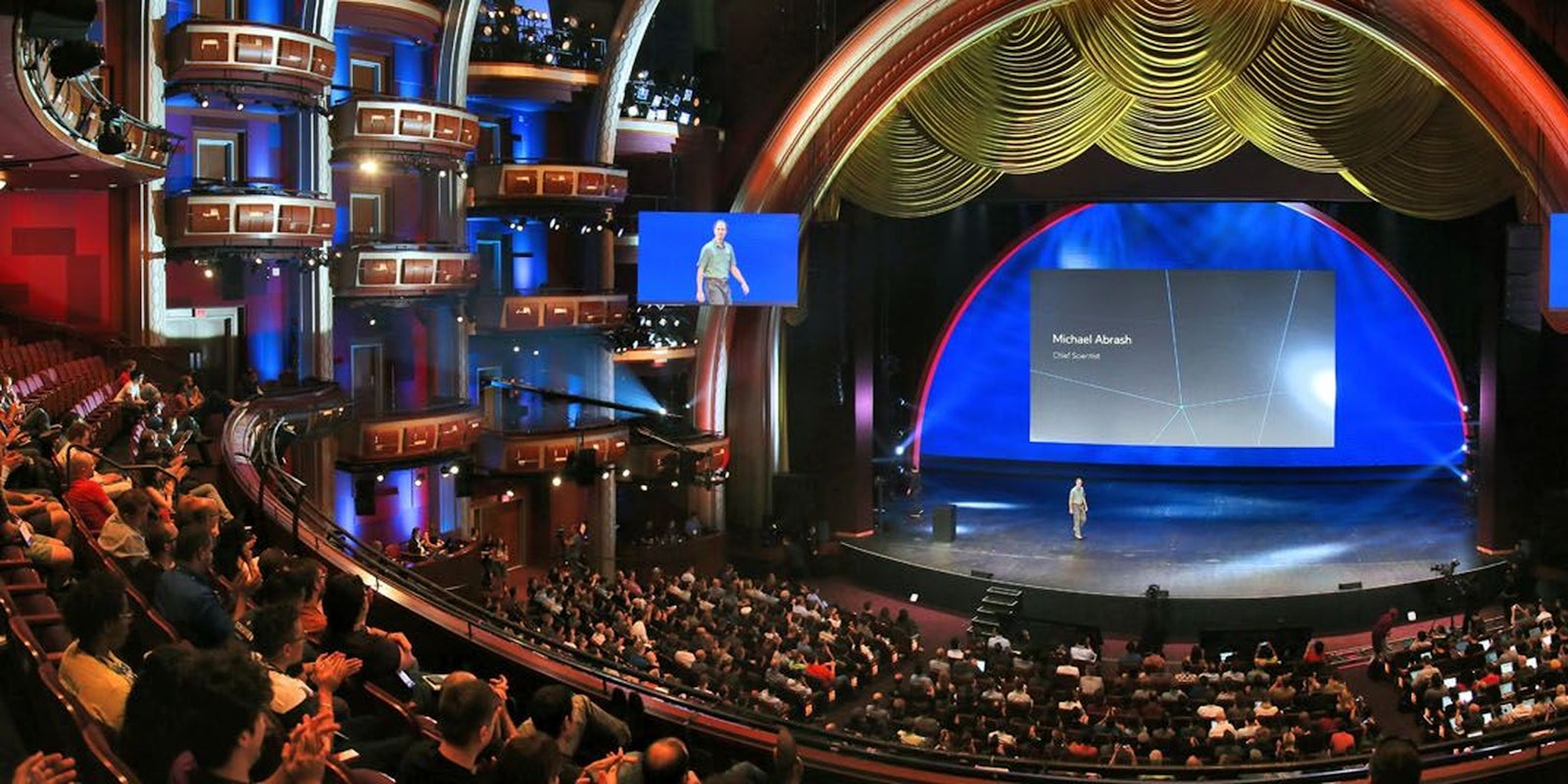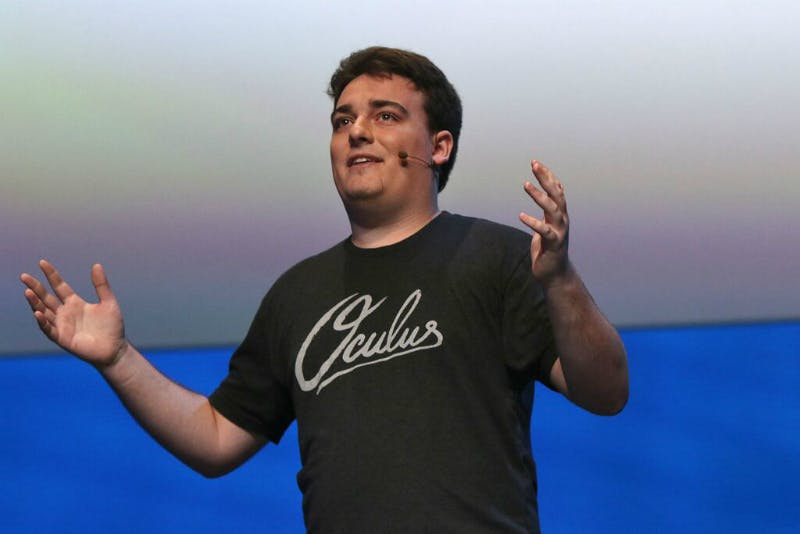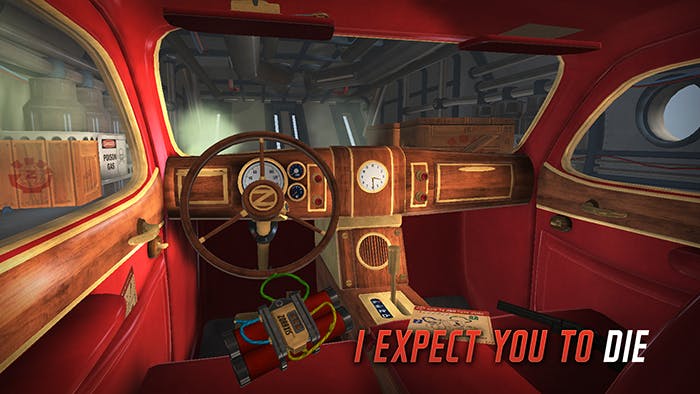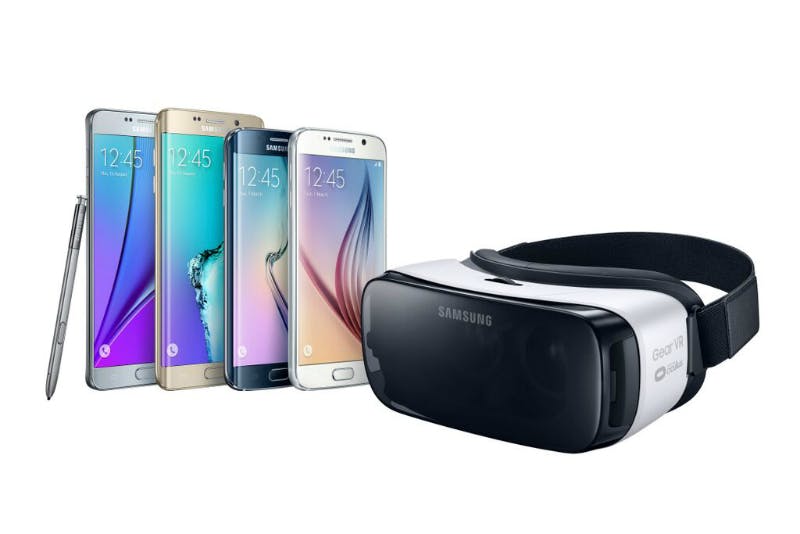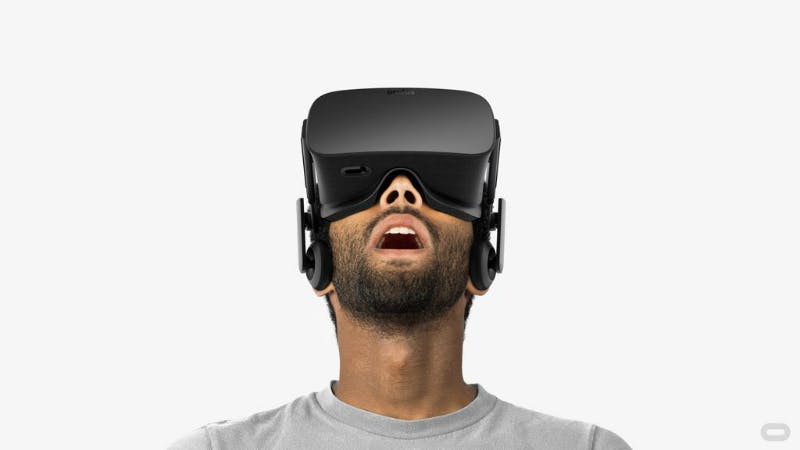“I don’t know” was the unofficial mantra of Oculus Connect 2, the world’s foremost conference on the future of virtual reality.
No one knows the best way to make virtual reality movies. No one knows the best way to make user interfaces in VR games. No one knows how much anything is going to cost.
This is the state of virtual reality, and it’s painted all over the keynotes, the software demos, and the private conversations between attendees at Oculus Connect 2. Virtual reality is a grey area filled with wide-eyed enthusiasts, potential investors, tech fetishists, and idealistic futurists.
The conference talks are about how VR developers have screwed up, followed by admonitions for the audience not to make the same mistakes. Presentations about new technologies point at an undefined future where, someday, the really cool stuff is coming.
There are demos for the Oculus Rift, sometimes with an Xbox One gamepad, sometimes with the Oculus Touch controllers. Sometimes you sit, sometimes you stand. Gear VR, the rig that uses Samsung phones, has its own section at the conference where people are chilling out on couches and watching Netflix and Twitch.
You see VR developers lining the hallways and crowding lounges with Gear VR headsets strapped to their heads. The headsets are passed around as developers try to make sense of each others’ demos.
It doesn’t seem like anyone is aware of, or cares, about the fact that in three to six months the Oculus Rift, the focal point of all the VR community’s effort will be released to consumers, and virtual reality will be subject to the court of public opinion.
Because it actually might not matter. Everyone at Oculus Connect 2 is settling in to play the long game, and no one understands this better than Palmer Luckey, the 23-year-old who founded Oculus.
Luckey guesses that it will take about 10 years for virtual reality to be mass-adopted. “I think that’s a good ballpark,” Luckey said. “I mean, if you look at the evolution of mobile computing, like the iPhone was not the start of mobile computing. A lot of people point to it, but there were lots of products that were still very successful without selling hundreds of millions of units. I think virtual reality is at that stage right now.
“It can be successful. It can sell millions or tens of millions of units, but it’s going to take some time before the quality and cost trade offs and content availability all work together to make this something that everybody wants to use, not just a select group of people.”
Right now, virtual reality is still very much defined by the video game world. The vast majority of the demos for the Oculus Rift, Oculus Touch, and Gear VR are games. There are on-rail shooters, action games, adventure games, puzzle games, job simulators, and we are just beginning to see high-quality first-person shooters.
Developers have figured out that in order to make good games for VR, they have to be designed for VR from the ground up, and it’s been three years since the first Oculus development kits made their way into developer’s hands. They are getting good at designing games for Oculus. But Luckey doesn’t think virtual reality needs to be about video games at all.
“The reason that VR has become so gaming-focused in just the last few years,” Luckey said, “counter to what virtual reality has been portrayed as for decades, is that the games industry is the only industry with the technology and the tools and the talent to create 3D worlds. In a way, it’s almost like they’ve been preparing for this the whole time. The creation of 3D game engines, 3D models, and real-time graphics, are basically the underpinnings that were required to make VR possible.
“And so as VR comes out, who’s going to make the first VR applications? Well, it’s not going to be telepresence people, or business people, or even these architects. The first things you’re going to see are games, and people from the games industry using games technology to make these other industries possible.”
Video games like first-person shooters laid the perceptual groundwork for understanding what it’s like to project a human being into a digital realm, as if the player is staring into the digital space through the eyes of an avatar. Massively multiplayer online games have learned how to give players a reason to immerse themselves in the digital realm. VR games will constitute the most of the software available for the Rift when it launches.
Industries outside gaming—those that will actually champion the push for virtual reality to go mainstream—have much more to learn in these early days of VR.
“Right now, the biggest innovation you see from a lot of VR applications is ‘This is a VR application,’” Luckey said. “You know, like, ‘We have a VR painting application.’ Or ‘We have a VR education application.’ And it’s like, ‘What makes it special?’
“‘Well—it’s virtual reality!’ But beyond that, the application actually is not necessarily super compelling and might not hold up to the traditional applications. I think, if you go five or 10 years into the future, doing that won’t be interesting. It’ll just be showing up. It’s table stakes. It’s like ‘Well, you’re a VR application, but what makes your app good beyond that?’”
Sometimes it sounds like Luckey is kindly poking fun at the developers who are grappling with this new technology. He’s been thinking about virtual reality and the metaverses that exist alongside our own for most of his young adult life. Developers also have been thinking about this sort of thing for years, and now they have to figure out how to build it.
Jesse Schell is a fixture in the serious games industry—a former Disney Imagineer who runs Schell Games, a studio in Pittsburgh that employs about a hundred developers. His studio has been getting into VR, and Schell Games is the creator of one of the high-profile Oculus Touch demos at the conference, a Proto Award-winning game called I Expect You To Die.
In the game you are a spy in training, seated in a wood-paneled car with red, plush upholstery that looks like something out of the 1950s. The car sits in the belly of a cargo plane, and your job is to drive the car out of the plane.
The problem is that everything in the car is primed to kill you, from the laser retina reader that will burn a hole in your eye or the bomb that drops at your feet when you put the key in the ignition and start the car.
You use the Oculus Touch controllers to pick up a knife and cut the wires on the bomb, or to look though instruction cards tucked into the door pockets that tell you how to accomplish other tasks. But no matter what you do, you’re going to wind up dead.
“We don’t know what this market is going to look exactly like a year or two out,” Schell said at his talk Making Great VR: Lessons Learned from ‘I Expect You To Die.’ “All the stuff is getting ready to launch. Are people going to want to play sitting on their desks, sitting on their couch, standing at their desks, walking around a room—we’re having more and more systems that are letting you have wider and wider spaces you can move around in.
“And that’s really cool, and it feels really great, but who has that much space? Who has a 15-foot-by-15-foot-space in their house? Are we going to see the return of Murphy beds, right? This will be the hot, new gamer thing?” The audience laughed, but Schell might be onto something.
Gamers might be willing to take those sorts of steps to incorporate VR into their lives. Getting a broader audience on board is another story and the lynchpin to virtual reality achieving the scale of use and absorption into society that Luckey wants to see.
“The biggest issue between, you know, the crowd that’s tech people and gamers,” Luckey said,” and then the Normies, is that it’s not a matter of trying it, it’s a matter of having reasonable access to it. I mean, right now the people who are going to use the Rift are mostly people who either have or are willing to buy high-end PCs. That’s just the reality of the technology as it exists today.”
Oculus announced on Thursday the Oculus Ready PC program that will have PC manufacturers like Asus, Dell, and Alienware on board to produce PCs with the horsepower to support the Oculus Rift. Some models will be going for less than $1,000. It’s one strategy to work around the fact that, while gamers and enthusiasts may upgrade their PCs every year or two to keep up with the best technology, regular users are more likely on a five-year replacement cycle.
It’s the same sort of roadblock faced by Samsung’s Gear VR mobile virtual reality platform, developed in cooperation with Oculus. Gear VR is designed for Samsung’s flagship phones like the S6 series. Will anyone be willing to spend the many hundreds of dollars it costs to buy an S6 phone if they don’t already own one?
“I think that access and ability to use virtual reality is going to be the bigger issue in the beginning,” Luckey said. “People might try future virtual reality and understand it, and they’re like ‘Well, this is awesome, I understand it, but I don’t have the PC required,’ or ‘I don’t have the phone that’s required.’ That’s going to change in the future. Over the next few years, the system requirements are going to become more and more mainstream. I believe that within five years, you won’t be able to buy a computer that’s not capable of driving a good virtual-reality experience.”
Michael Abrash, chief scientist at Oculus and formerly a VR researcher at Valve Software, is researching what hardware designers have to do to make the virtual feel as real as the real.
In his keynote speech, Abrash talked about the impossibility, in the foreseeable future, of incorporating smell and taste into VR. Haptic technology—the science of incorporating touch—is still in its infancy compared to what VR will require.
Even audio, something that the video game industry excels at, is still a challenge in virtual reality. Making sounds generated from different distances sound real requires controlling the angle at which sound waves enter the ear canal, among other things. And how do you control for all the different shapes and sizes of the human ear with input so subtle?
“These are the good old days,” Abrash said, the days of virtual reality pioneers, the days that VR devs will look at 20 years from now, and chuckle at how no one knew what they were doing, how the science of VR development was so unformed, and when questions far, far outweighed answers.
Abrash mentioned the book Hackers: Heroes of the Computer Revolution, the story of the pioneers who made the modern computer age possible. The people in the audience are the folks who will be in the book about the history of VR, he said, and when they get to the chapter about Oculus Connect 2, they’ll be able to say “I was there!”
The audience applauded. It felt like future-tense self-congratulations. It’s the confident assumption that virtual reality is going somewhere. No one at the conference seemed to think virtual reality could be anything other than the next, great technology that transforms human existence—or at least nobody expressed their doubts out loud.
I ask Luckey if there’s a dangerous space between when the shine of VR’s newness wears off among the tech enthusiast crowd and when it’s finally adopted by masses. Could VR could stall and perhaps fail?
“I’ve thought a lot about this,” Luckey said, “And the conclusion of all my thinking is that if virtual reality is relying on timing that gap perfectly to be successful, it’s not as compelling as I think it is. I mean, if VR is actually this technology that’s going to change the world, that’s actually going to become eventually as high fidelity as real life, or at least reasonably close, sure, there might be some period where there’s a lack of hype, or where advancement slows for a year or two, or where it doesn’t take off mainstream, you know, as things go.
“But, all that means is that a year or two later, when the next big advancement does happen, or when computers do drop enough in price, that just means it’s just going to pick up right where it left off. People aren’t going to be like, ‘Yeah, I don’t know about virtual reality, I mean it was popular, and anyone can buy a headset for $100, and everyone’s PC can run it but, you know, it’s just played out.’ That’s not gonna happen.”
Photo via Oculus

